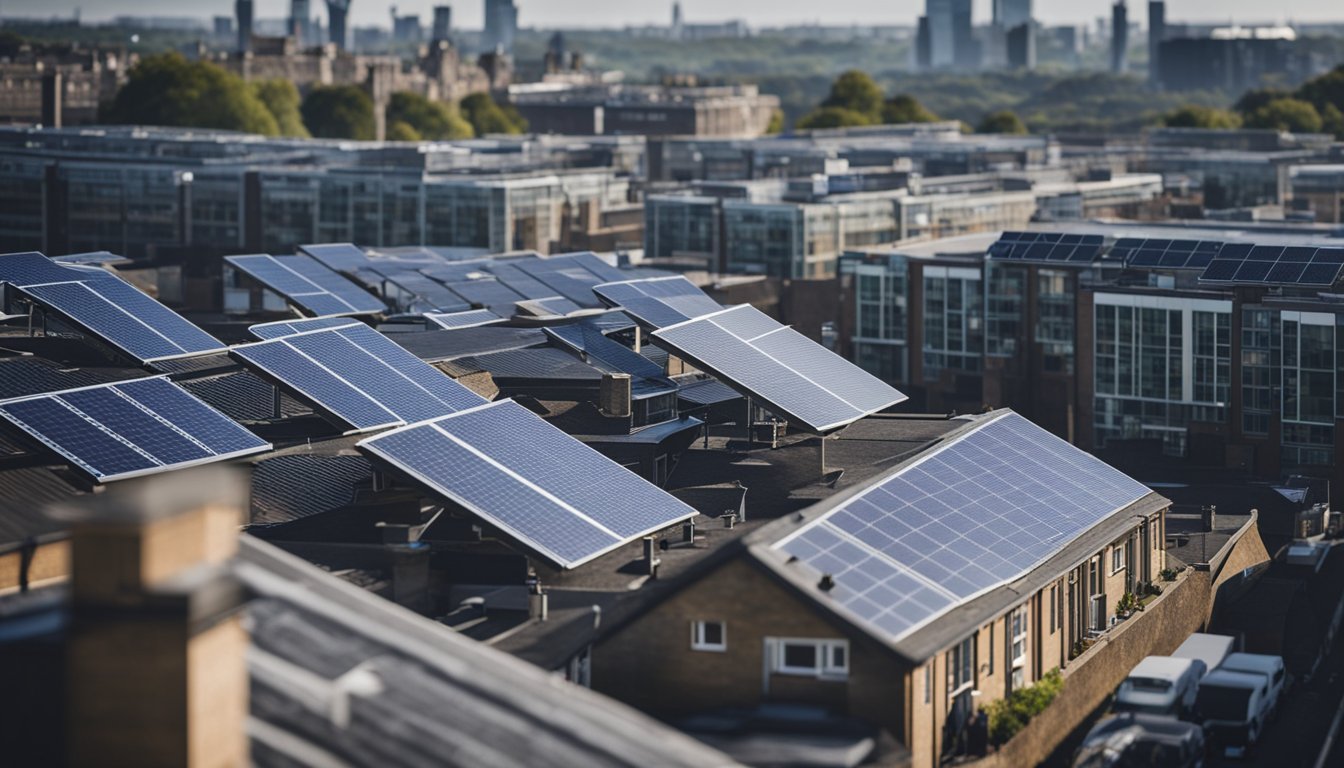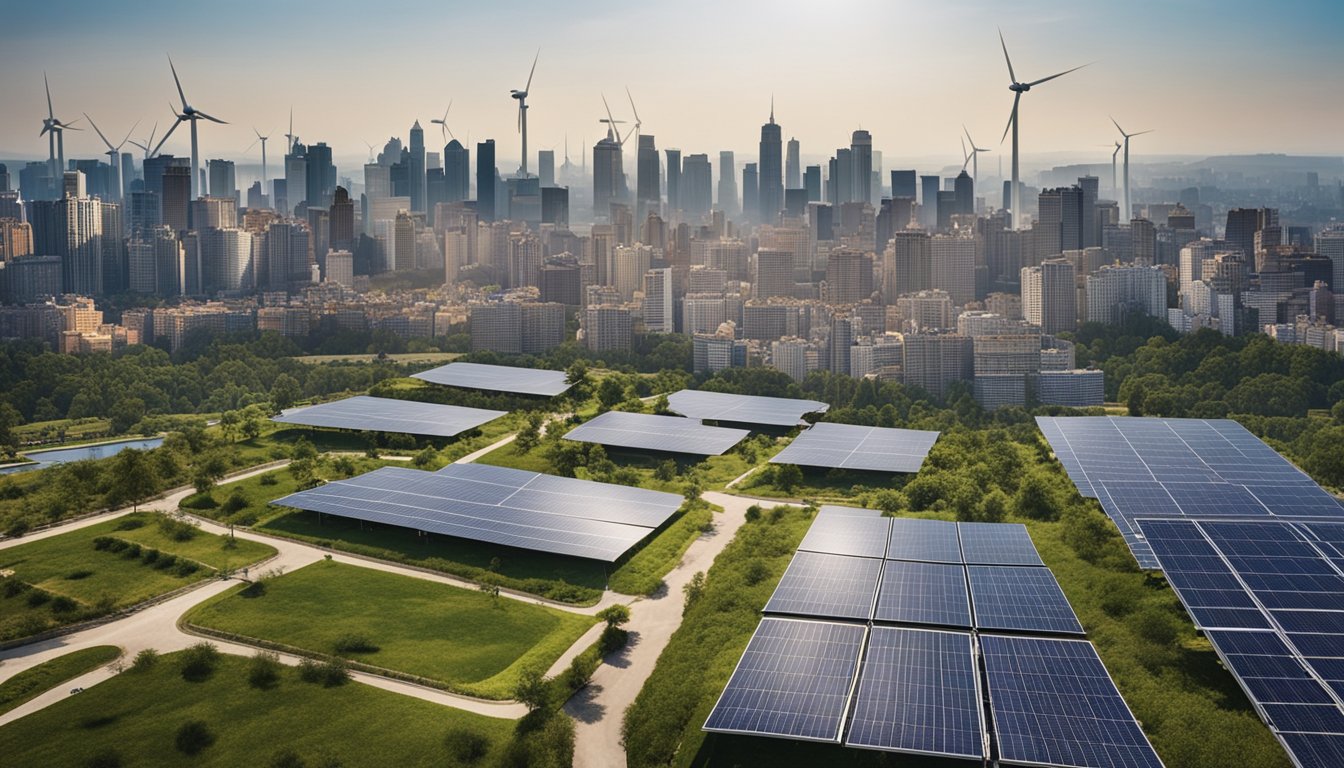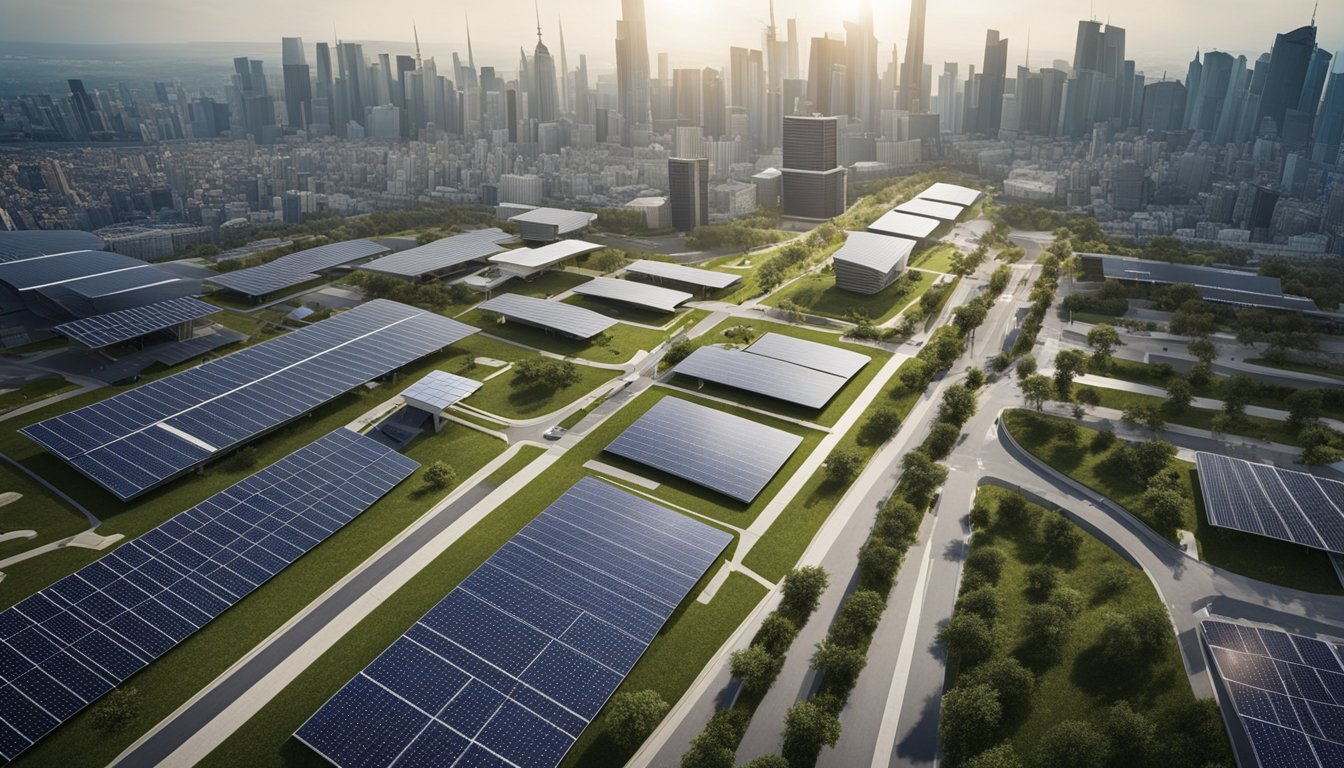Late updated: 10 Feb 2025 10:02
Written by: Eleanor Hartman
Sustainable Energy Solutions for UK Urban Living: Innovations for a Greener Future
The shift towards sustainable energy solutions in UK urban living is a pressing concern as cities grapple with the realities of climate change and resource constraints. As urban areas are responsible for significant energy consumption and emissions, integrating renewable energy into city infrastructures is essential. By embracing technologies such as electric vehicles and implementing sustainable energy strategies, we can significantly reduce urban carbon footprints and improve quality of life in cities.

Urban centres in the UK are leading this transformation through innovative solutions that leverage smart technologies and efficient energy management practices. The transportation sector, a major contributor to emissions, is undergoing a vital shift with the rising adoption of electric vehicles. Alongside, sustainable design principles and intelligent building practices are paving the way for greener urban environments.
Our strategies focus on enhancing urban energy dynamics by prioritising renewable energy adoption and reducing dependency on fossil fuels. By implementing these solutions, we align our urban living with the goals of sustainability, ensuring a resilient and cleaner future for our cities.
Key Takeaways
- Sustainable energy reduces urban carbon footprints.
- Smart technologies enhance energy efficiency.
- Electric vehicles transform urban transport systems.
Urban Energy Dynamics in the UK
Understanding the current dynamics of urban energy in the UK involves examining both the challenges in meeting growing energy demands and significant advancements in energy systems, such as smart grids and district heating. These changes are crucial for reducing fossil fuel reliance and mitigating carbon emissions while integrating more renewable energy sources.
Challenges of Urban Energy Consumption
Urban areas in the UK face significant challenges with energy consumption due, in part, to the high population density and increasing energy demands. This situation is exacerbated by the continued reliance on fossil fuels, which contribute heavily to greenhouse gas emissions.
Urban energy systems often struggle with inefficiencies, requiring a notable shift towards energy-efficient solutions to meet climate change goals. The integration of renewable energy sources remains inconsistent, complicating efforts to reduce carbon emissions. To address these challenges, there is a pressing need for robust infrastructure that supports distributed generation and encourages sustainable practices.
Advancements in Urban Energy Systems
Despite these challenges, there are promising advancements in urban energy systems within the UK. Smart grids and energy-efficient technologies lead the charge in transforming the landscape of energy consumption. By adapting more advanced management of electricity distribution, we can optimise energy use and increase the integration of renewable energy.
District heating networks, combining heat and power, showcase the potential for reducing energy wastage and emissions. Such systems not only benefit local economies but also support national decarbonisation targets. Additionally, government policies are slowly shifting to promote these technologies, providing favourable conditions for their growth. These advancements offer a pathway for achieving sustainable urban living.
Strategies and Solutions for Sustainable Urban Living

In tackling the sustainability challenges of urban living in the UK, we explore the integration of renewable energy, implementation of energy efficiency measures, and the supportive role of policy frameworks. These strategies are crucial in transforming cities into more sustainable environments.
Adoption of Renewable Energy Sources
Solar energy has emerged as a significant player in urban sustainability. Solar panels on rooftops effectively harness sunlight, providing clean power while reducing electricity bills. Wind energy, though more common in rural areas, is being explored in urban settings through smaller wind turbines. Implementing renewable energy sources reduces our dependence on fossil fuels and cuts down environmental impact.
Local authorities are pivotal in supporting this transition by providing subsidies and incentives for adopting such technologies. As a result, businesses and residents are more inclined to invest in alternative fuels and cleaner energy options that contribute to urban sustainability.
Energy Efficiency and Conservation Measures
Incorporating energy-efficient technologies and practices is vital for urban sustainability. Buildings outfitted with LED lighting, thermal insulation, and smart meters significantly cut energy consumption. These efforts not only save costs but also lower carbon footprints. Improving public awareness about energy conservation is equally important, encouraging inhabitants to adopt responsible behaviours in their daily routines.
Moreover, efficient waste management systems help cities manage resources judiciously, turning waste into energy or compost when possible. Strategies like recycling and reducing waste generation work alongside energy efficiency initiatives, forming a comprehensive approach towards sustainability.
Policy Frameworks and Subsidies
Robust policies and subsidies play a crucial role in promoting sustainable energy solutions. Governments can offer incentives to individuals and businesses for transitioning to renewable energy systems. These policy frameworks often include tax breaks, grants, or low-interest loans, making it more feasible to invest in technologies such as solar and wind energy.
Additionally, local authorities must enforce standards for new constructions, ensuring that they meet the latest energy-efficient and sustainability criteria. By fostering supportive policies, we create an environment where businesses can develop sustainable business models and residents can contribute meaningfully to urban sustainability efforts.
Frequently Asked Questions

Exploring sustainable energy solutions in urban settings involves understanding efficient renewable sources, reducing energy usage, and recognising key players and targets in the UK. We also consider incentives local governments can offer and innovations driving future urban sustainability.
What are the most efficient renewable energy sources suitable for urban environments?
In urban settings, solar panels and wind turbines are efficient due to their capacity to generate power in limited spaces. Solar panels can be installed on rooftops, while small wind turbines can fit into urban landscapes. Additionally, the use of biomass and geothermal systems can supplement energy needs.
In what ways can urban inhabitants significantly reduce their energy usage?
Urban residents can lower their energy consumption by adopting energy-efficient appliances and smart home technologies. Implementing LED lighting, ensuring proper insulation, and using energy-saving practices, such as unplugging devices when unused, are effective. Public transport and car-sharing also contribute to reduced energy demand.
Which companies are leading in providing sustainable energy to urban households?
Companies like Octopus Energy and Good Energy are at the forefront of delivering sustainable energy solutions to urban areas in the UK. They provide innovative services that promote the use of renewable sources, helping households to adopt greener energy practices.
What targets have been set by the UK to achieve its sustainable energy objectives?
The UK aims to achieve net-zero carbon emissions by 2050. This entails increasing renewable energy use, reducing fossil fuel dependency, and enhancing energy efficiency in urban areas. Interim targets include significant reductions in greenhouse gas emissions to ensure steady progress toward these goals.
How can local governments incentivise the adoption of green energy practices in cities?
Local governments can introduce tax credits and grants for installing renewable energy systems. They can also facilitate cooperative schemes that support community energy projects. Educating the public on the benefits of sustainable energy practices and providing accessible information are also key measures.
What innovations in technology are driving the future of urban sustainable energy?
Smart grid technology and the Internet of Things (IoT) facilitate efficient energy distribution and management. Renewable energy storage solutions, like advanced batteries, optimise energy use. Furthermore, artificial intelligence helps manage demand-response systems, ensuring a balanced energy supply and reducing waste.